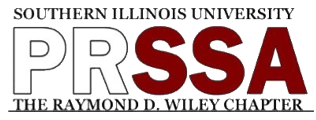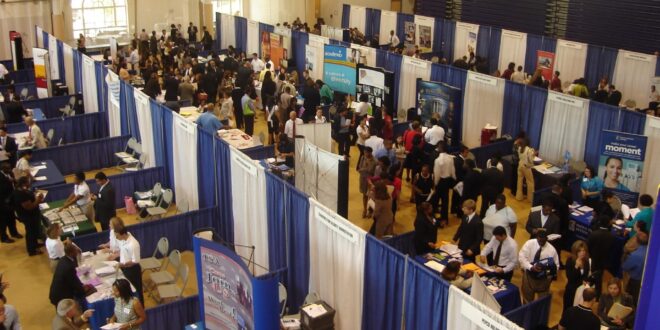As a college student, preparing for a job fair can potentially be difficult if you’re unsure of what to bring. Attending a job fair can offer many opportunities to help expand and practice your networking skills while also potentially getting a job or internship. Here are a few tips to help you prepare for a job fair.
1. How to Dress
Dressing appropriately serves as a first impression and shows employers how you present yourself. The job market is competitive, so you want to find ways to stand out. Some appropriate business attire includes:
- pantsuits and dresses
- tops and jackets
- skirts
- accessories
- suits
All business attire should be clean and pressed, with no holes, and in neutral colors such as black, grey, or tan. When accessorizing, it’s best to keep your jewelry to a minimum to avoid distractions. Jewelry such as earrings, one or two rings, and a necklace is acceptable for a job fair. Finally, picking the right outfit for a job interview is very important because it can help with your confidence. You are more likely to project confidence and impress your interviewer by wearing an outfit you feel comfortable and confident in. You are less likely to be distracted by discomfort and nervousness. This can help you feel more relaxed and prepared for your interview.
2. What Should I Bring?
Figuring out what to bring to a job fair can be confusing because you want to stand out and increase your chance of being noticed by potential employers. According to Indeed.com, you should bring extra copies of your resume, notepad, pen, and your elevator pitch. Your resume is one of the most important items you will bring to a job fair; it highlights your education, skills, and experience. Bringing a notepad and pen can help you keep track of which companies you spoke with and key points from your interview. Finally, your elevator pitch is a brief and direct way to introduce yourself and your career objectives to a potential employer.
Before your interview, you want to research the companies or organizations that may be at the job fair. Doing this may boost your chances of getting the job in multiple ways. It can help you get a better understanding of the company’s culture and values, which shows you are interested in the company and the position. Researching the company can help you prepare questions for the interviewer, and finally, it can help you identify commonalities between your skills and the company’s needs.
3. Interview Questions
Preparing for interview questions can be difficult if you’re unsure of the types of questions employers may ask. Here are a few questions that employers will almost always ask:
- What are your strengths?
- What are your weaknesses?
- What makes you the best candidate for the job?
- Where do you see yourself in five years?
- What can you bring to the company?
Employers want you to ask them questions as well. Asking questions makes you look engaged and interested in the position. Here are a few questions to ask your potential employer:
- Can you describe the work culture?
- What do you enjoy about your job?
- Are there opportunities to move up in the company?
- What are some challenges you’ve faced in your role?
- How is the hiring process?
- Can you tell me more about my responsibilities for the position?
These are simple yet effective ways to prepare for a job fair. Attending a job fair can be scary, especially for a soon-to-be graduate, but if you follow these tips, you’ll be ready for any job that comes your way.
 SIU PRSSA Southern Illinois University Public Relations Student Society of America
SIU PRSSA Southern Illinois University Public Relations Student Society of America




